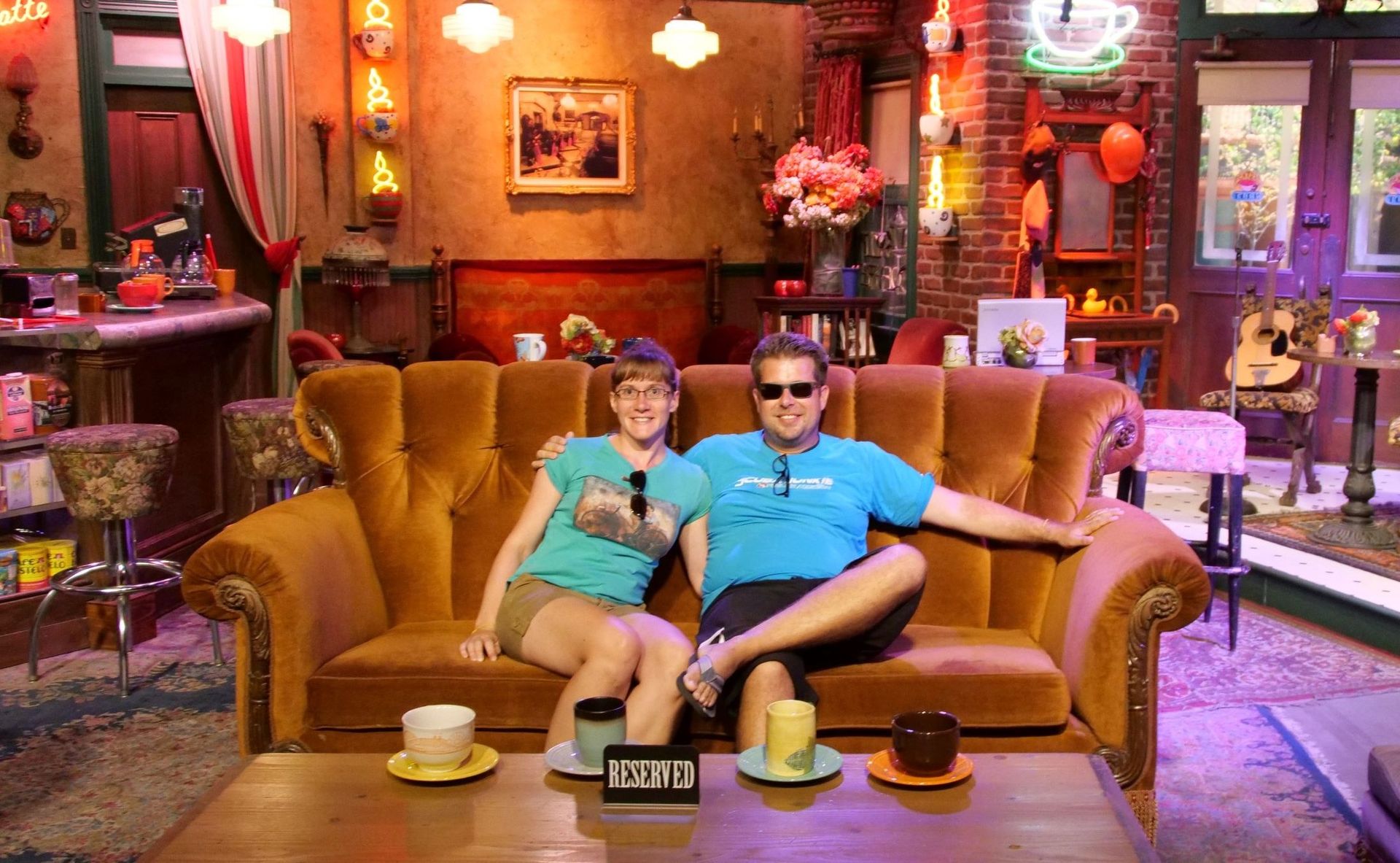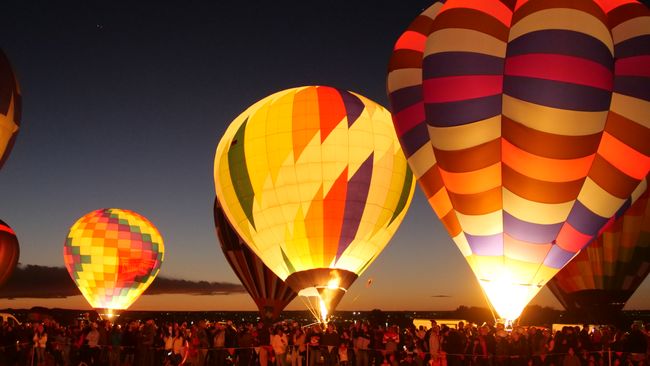20/11/2018 to 21/11/2018 - Petra / Jordan
Diterbitkan: 17.03.2019
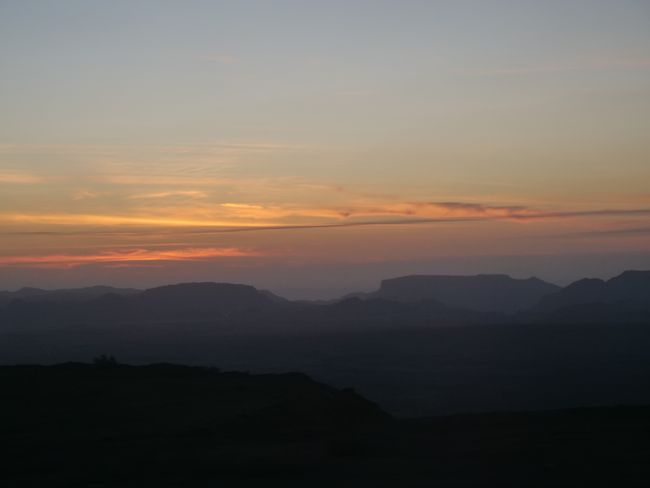
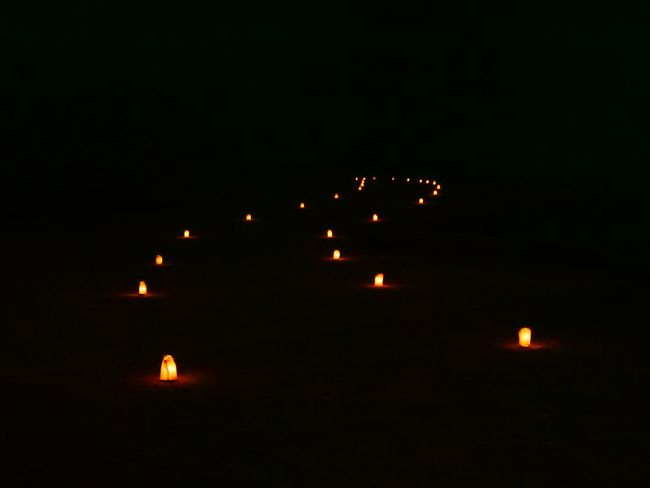
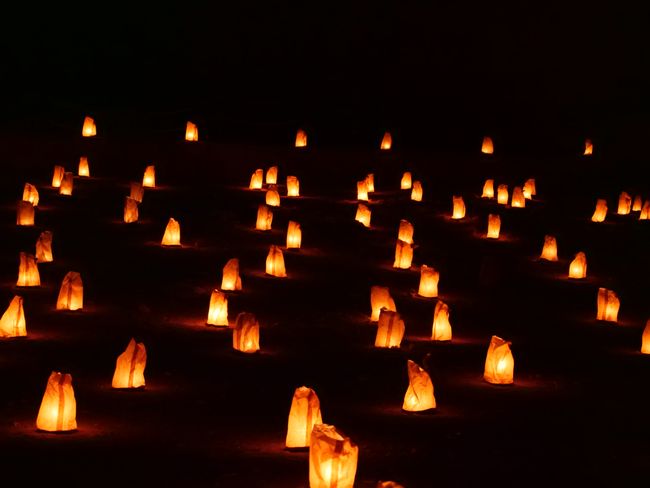
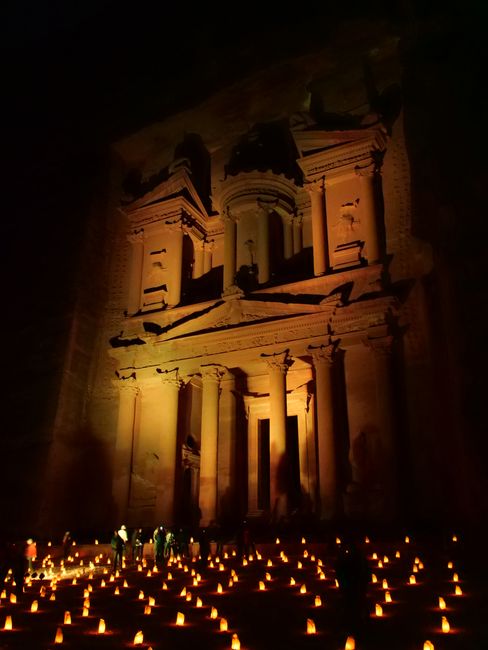
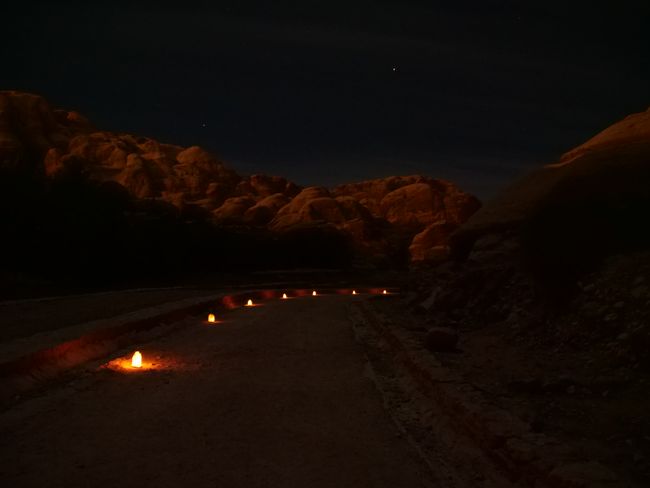
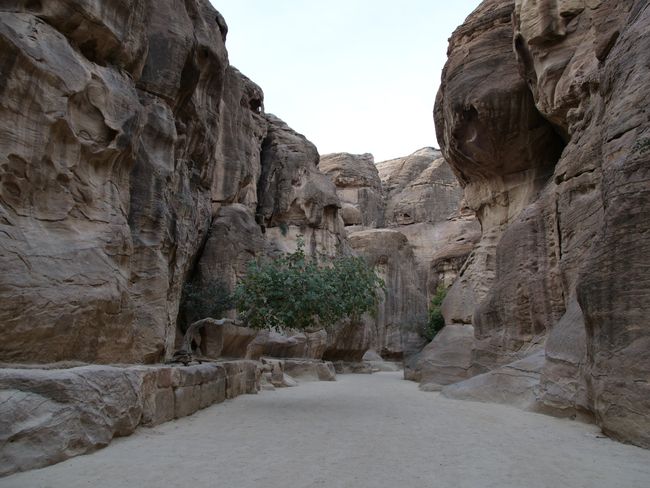
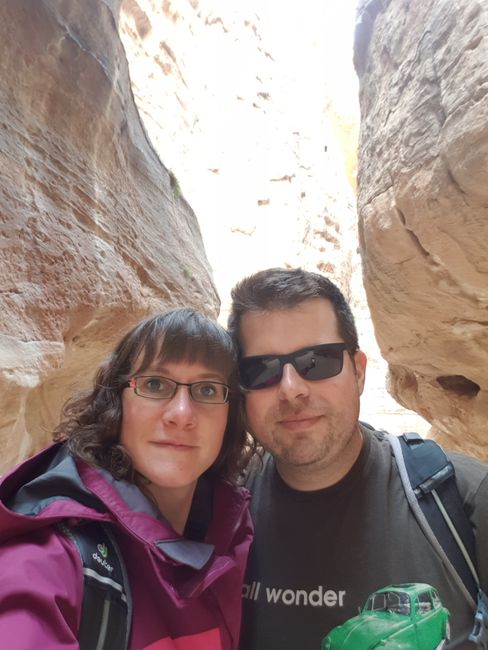
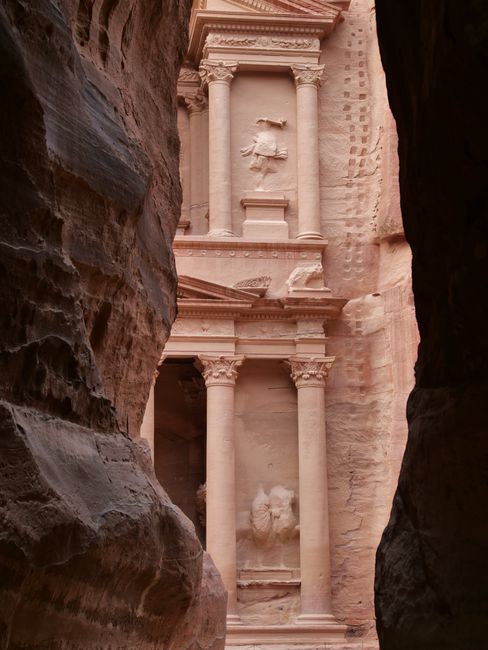
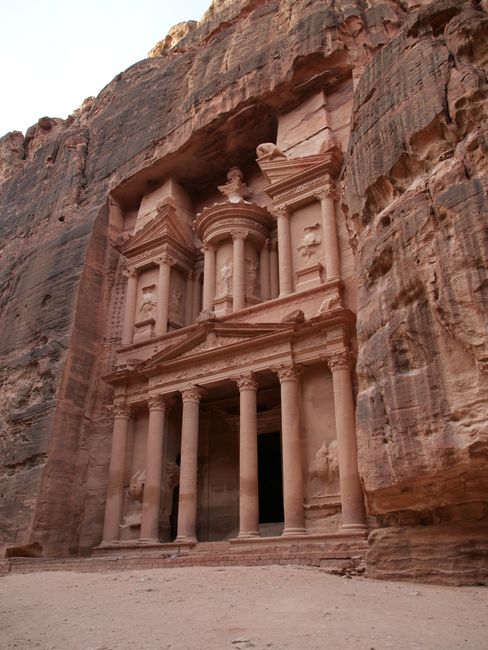
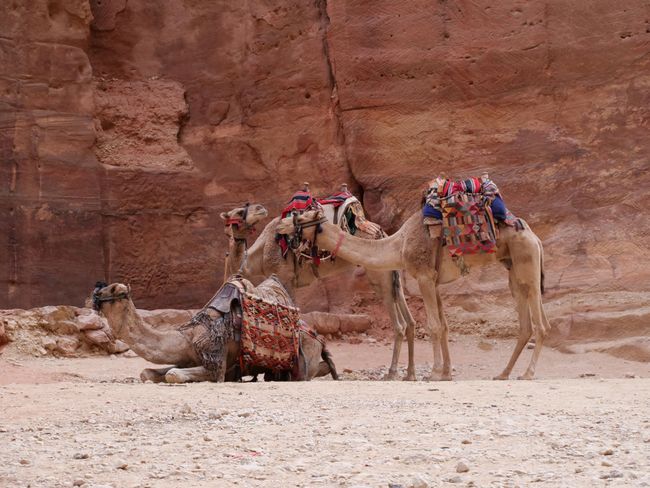
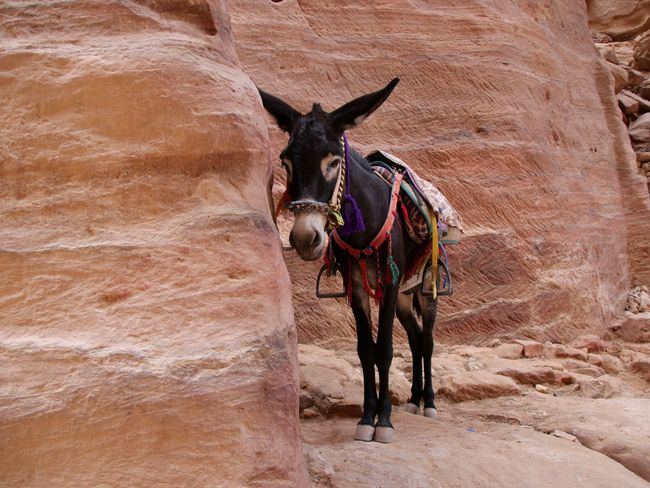
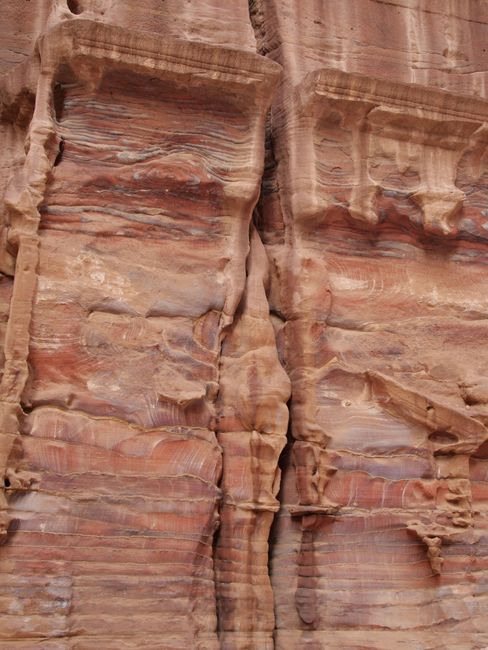
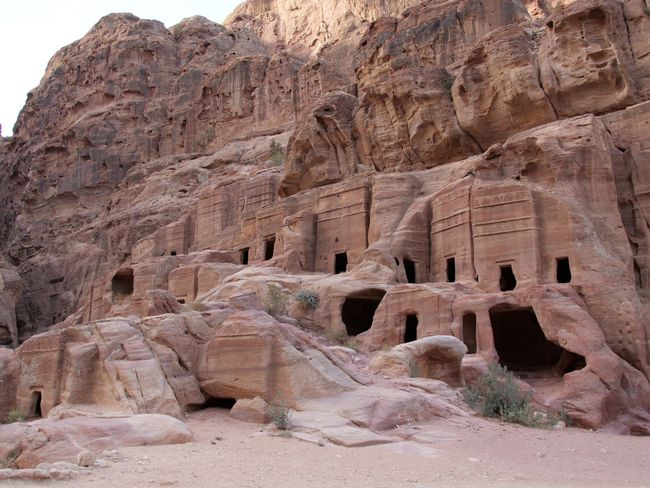
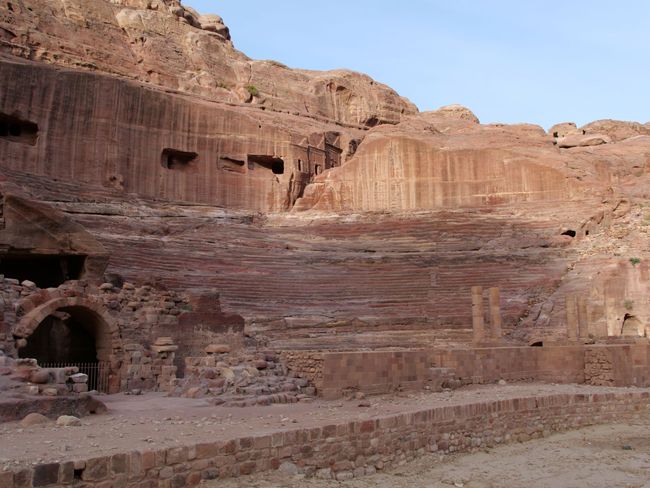
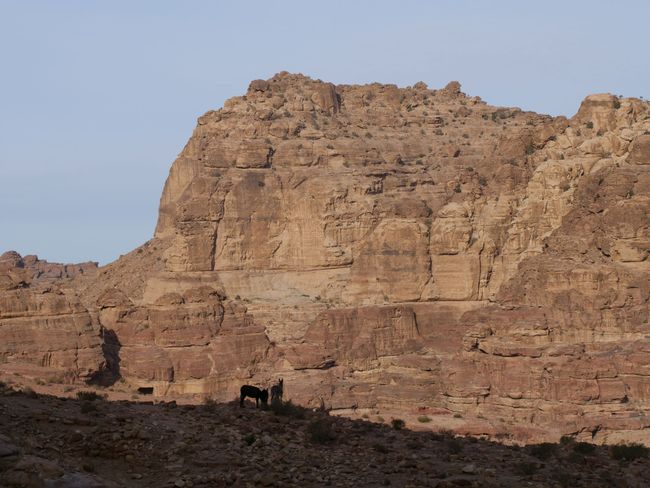
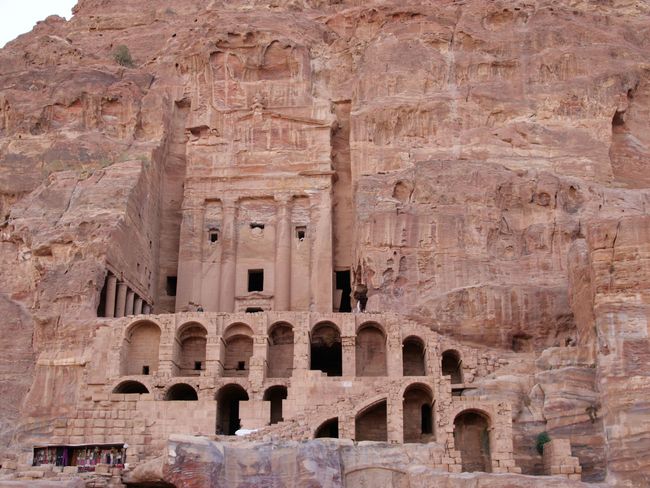
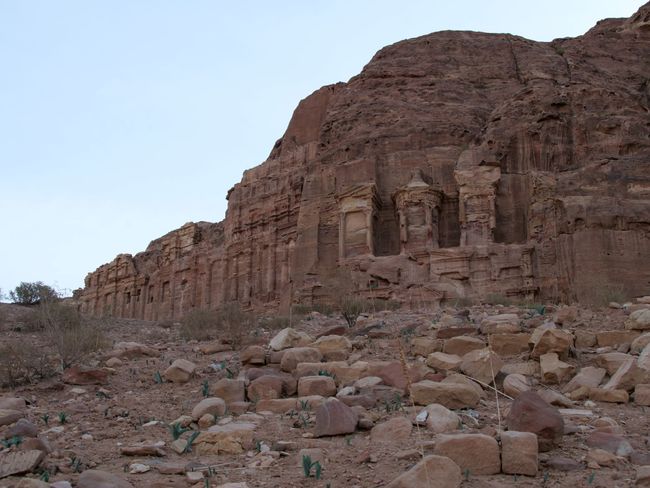
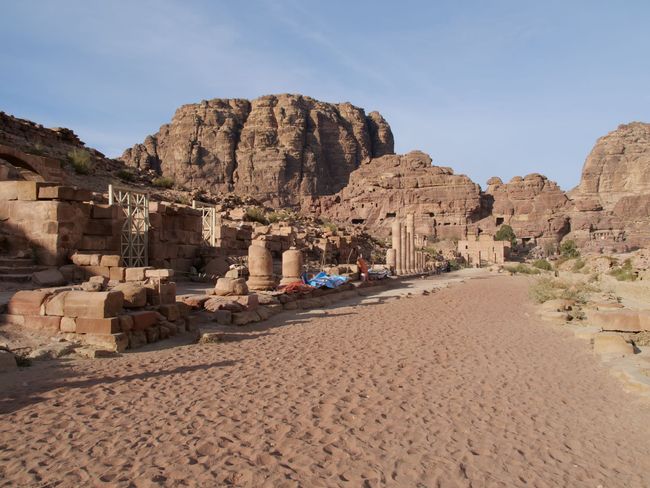
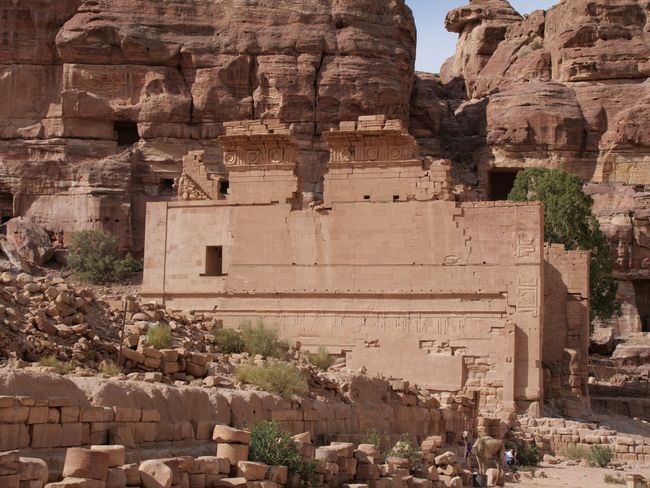
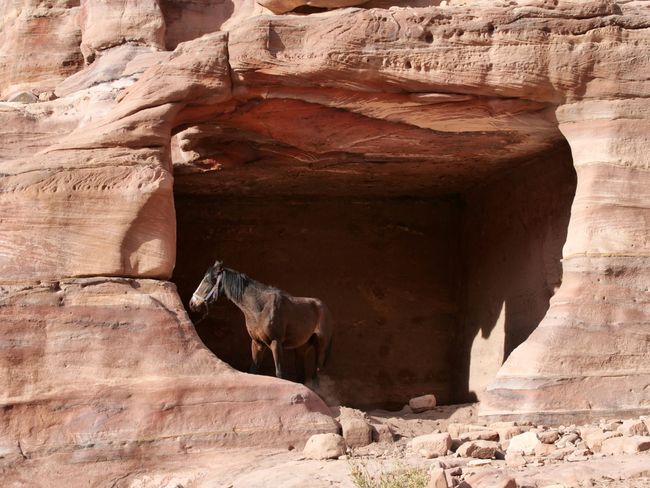
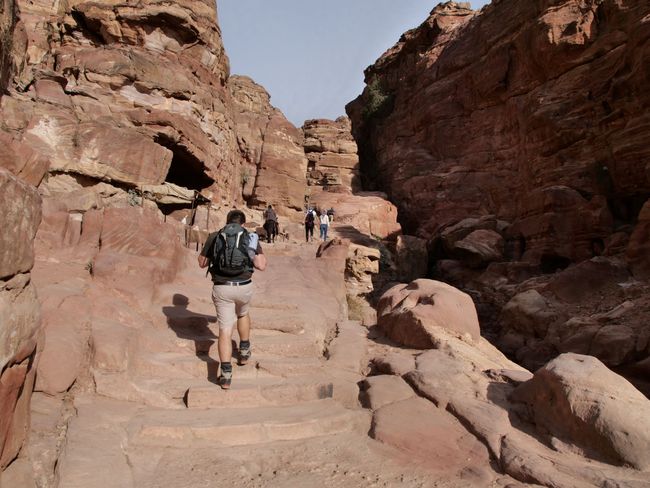
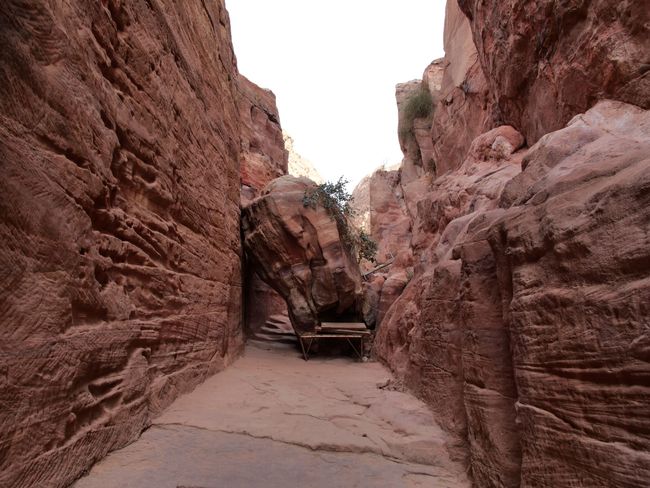
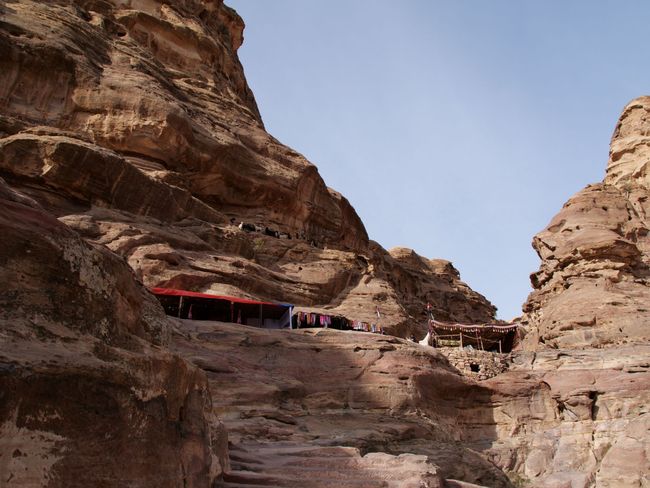
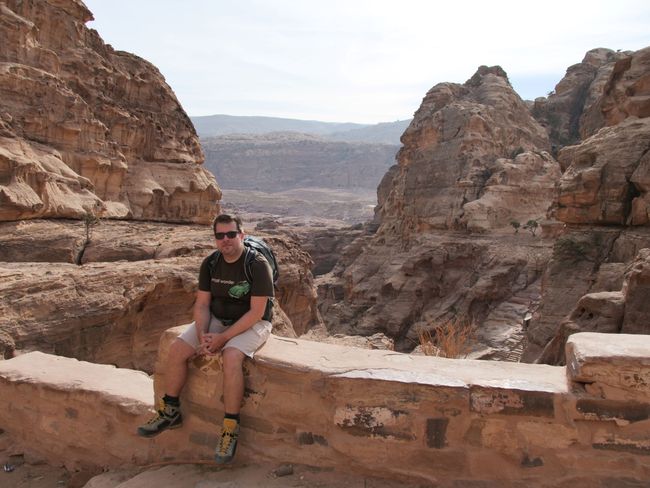
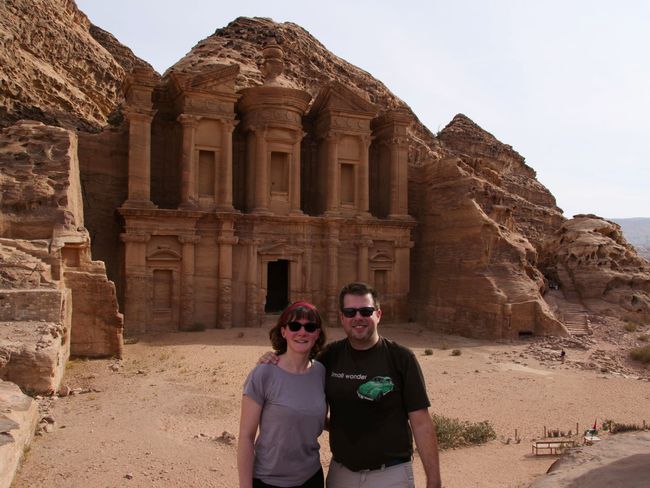
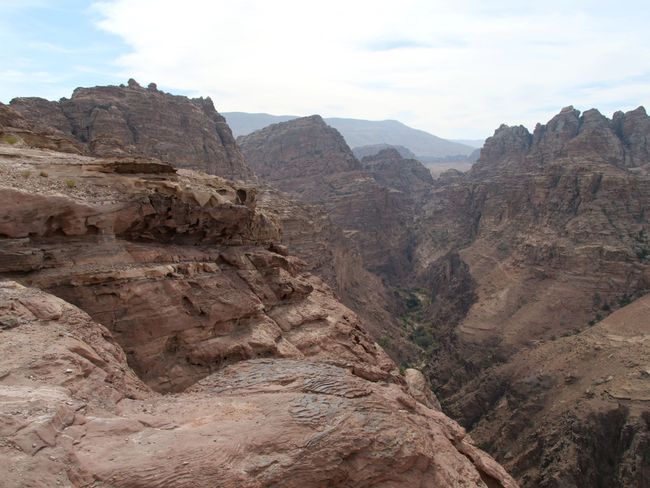
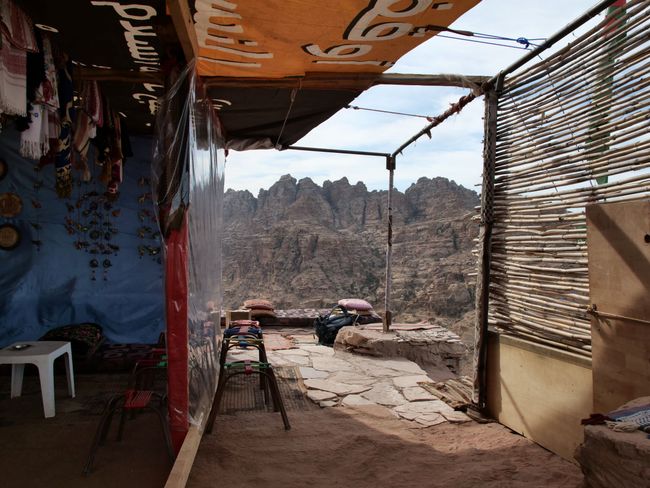
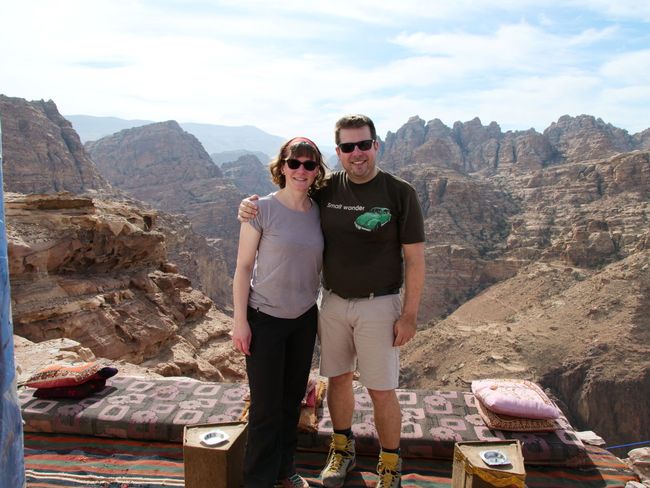
Berlangganan Newsletter
20/11/2018
Moored in Aqaba. We embarked on a bus journey to Wadi Musa. Jordan's landscapes passed us by during our 2-hour drive and the sun disappeared behind the mountains. We arrived in the village around 18:00. We had booked a private accommodation. Very nice hosts showed us the shared living spaces and our own bedroom. They cooked us typical, delicious Arabic dishes.
Then it was time for Petra by candlelight. Our landlord took us to the main entrance of the rock city and a special adventure began. We had a good 2-kilometer walk ahead of us. From the entrance gate, we walked along the main path. Protected from the light breeze by white paper bags, the path was lined with small tea lights. We started counting and stopped at 100. In the gentle lighting, we could see the first tombs and blocks of stone that were carved thousands of years ago. We continued through the narrow gorge called "Siq". Along uneven paths, past mystically shaped rock formations, we now heard faint music. So we were almost there. The Siq ends at Petra's most famous building, the Treasury. We stood in the middle of a sea of lights from thousands of burning candles. A local played the pan flute and the 40-meter-high facade of the Treasury was illuminated in colorful lights. We found ourselves in the fairytale of One Thousand and One Nights.
21/11/2018
Still before sunrise, right after the opening of the rose city, we found ourselves again at the main entrance of Petra. We walked along the main path and through the Siq. In daylight, we now saw paved streets, statues, and Nabatean holy stones - great relics from the city's past. We reached the Treasury. Even in daylight, it was a magnificent building. A richly decorated facade, crowned with a huge urn that, according to legend, contained the pharaoh's treasure. The Treasury was probably built in the 1st millennium BC. We had only seen a few visitors, some camels, and donkeys so far. Still early in the day, we had plenty of time to explore more highlights of the city. We walked along the Street of Facades, a row of Nabatean tombs, to the theater. Then we reached the Royal Tombs. Wonderful adjacent facades. You can partly see the different-colored layers of rock from which they were carved. The sun slowly rises and bathes the city in a beautiful play of colors. After a short break, we walked along the Colonnaded Street, past the Great Temple and the High Place of Sacrifice. We were eager to discover more, so we embarked on the most challenging part of our tour. 2.5 kilometers and over 800 steps to the Monastery. We were a bit out of shape, but we managed the strenuous climb and were rewarded with a breathtaking building. Ad Deir is one of the largest structures in Petra. The Monastery is 47 meters wide and 48.3 meters high. It is impressive what our ancestors created with far less modern technology. Signs everywhere, as there are supposed to be great views up here. We walked a little further and found our "best view". We were all alone and enjoyed the view over Jordan and across the border to Israel. In the small bar, we rewarded ourselves with a cold cola and a few minutes of rest. But we also needed a group photo. We handed the camera to the bar owner and wanted to explain how it works. Ridiculous. He takes hundreds of pictures of visitors every day and knows all about every piece of technology.
We slowly made our way back and were glad that our day started so early because now there were too many people in Petra looking for impressions and the most beautiful snapshots.
We don't know exactly when Petra, the capital of the Nabateans, the Rock City, was built, but we can consider ourselves lucky that this masterpiece was rediscovered. On July 7, 2007, Petra was chosen as one of the new Seven Wonders of the World.
Berlangganan Newsletter
Menjawab
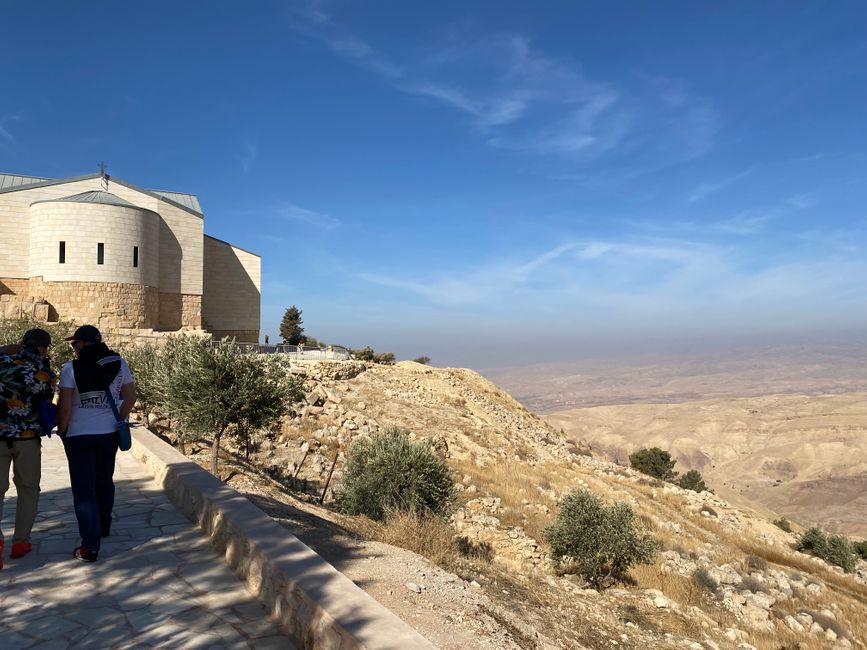
Laporan perjalanan Yordania
